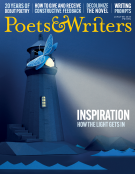Who was the first person to cry out in relief at the sight of a lighthouse? Disoriented and afraid, their wooden boat thrashed by black waves, what was it like for them to suddenly see a point of light in the distance? When I’m thinking about the very first lighthouses, the bonfires on Irish cliffs or even the lighthouse of Alexandria in ancient Egypt, it’s not the history-book stories I’m interested in but rather the individual ones. I don’t know who the first people were to be saved by lighthouses but I can imagine being one of them. I can imagine their panic and then the flood of relief, catching sight of light blazing from shore. What a surprise it must have been, not even knowing such help was possible. I can also imagine the lonely vigil of operating a lighthouse, feeding wood into the furnace, checking the mirrors, keeping watch. What it might feel like to know, each night, that the quiet and solitary work might save someone. Lighthouses are a straightforward example of the human impulse to care for other people. A means of giving and of receiving help.
Several years ago I felt lost with my writing, estranged from it. I couldn’t sustain a regular practice. I wasn’t recording anything, drawing, taking notes. I wasn’t reading in that writing way, when writing becomes a conversation with other writers and their books. I wasn’t trying anything new, playing around, experimenting. I was absorbed in what felt like writing’s opposite, a to-do list of obligations that had a kind of monstrous quality. This list could never grow smaller, only larger.
Before the pandemic lockdown I’d been sliding into not prioritizing a creative practice. I was still finishing pieces and projects, but arduously. When the COVID-19 pandemic sent my children home from school and my colleagues and students home from our university, my to-do list took on a life-or-death level of urgency. The list, in full monster mode, made keeping a notebook or any kind of playing around with language seem ridiculous. Figuring out, week by week, the best ways to keep my family safe was my priority, along with managing school at home for my children and the larger task of finding ways to address the toll of isolation. At the writing program in which I worked, I scrambled to help keep an artistic community alive. The campus had been shut down, and so many students and colleagues were plunged into crisis. At home and at work, the people I was responsible for needed new structures, new ways to have fun, new ways to find motivation and inspiration. I fought to keep the metaphorical lighthouse bright for everyone in my sphere. My own writing became an obligation I didn’t have time for. Even when I tried to make time, I couldn’t find a way in. It was so far away.
And then a beam of light found me. Michele Kotler, who established the teaching artist organization Community-Word Project in New York City, and who trained me to be a teacher many years ago, texted with an invitation. She had started a writers group with several other women, and she wondered if I would like to join. Michele brings together a group of poets whose jobs, like mine, involve helping other writers. The poets converge from disparate cities—New York, Milwaukee, Boulder, Houston, Abu Dhabi—to write. Our sacred process is this: We catch up, venting about personal hardships and global tragedies, the small and large ways we may feel lost. We entertain a number of inside jokes. And then we read a poem, put down some common words to share, set a timer, and write.
This group brought me back to a writing practice. It taught me something I learned when I first fell in love with writing but had forgotten over time, bit by bit: that writing is an action to become absorbed in, more than it is a product. It takes time and effort, but artistic work is different from domestic or professional work. If we develop the connections or rituals to nurture a real artistic practice, we get to immerse ourselves in an exhilarating creative concentration. I think of the darkness of the pandemic, the sense of being disoriented and lost and afraid. And I remember the feeling when I was new to the group, of walking to my desk on a winter morning, knowing that these poets had gathered and would welcome me in, through the glowing portal of my laptop. When we write together, I feel like a nun, praying with my sisters in our convent. This is not the only time I have been saved. But there’s something very special about a group like this, a group of poets, women, witches, nuns, lighthouse workers, whatever we might be called, who have done so much of the repetitive and isolating work of caretaking. We’ve found a method of tending the light together, for ourselves. I hope that if you ever feel far away from your own creative practice, you can find people or rituals that point you toward the light. Each week with my fellow poets, I feel the relief of someone on dark water seeing a blaze on land. Here, like this, this way.
Laura Cronk is the author most recently of Ghost Hour (Persea Books, 2020). She is an assistant professor of writing at the New School in New York City, where she also serves as poetry chair for the MFA program in creative writing.
Thumbnail credit: Helen Friel







